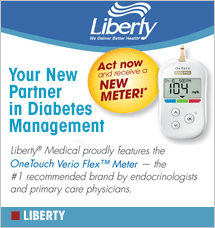
Mom became lost on the one-mile trip home from her weekly beauty shop appointment. We knew something was up. Mom always had a poor sense of direction. Returning me to my Indiana college one fall day, she was distracted by an 8-track of John Denver and drove east into Ohio. However, this incident was beyond her normal routine.
How do you know when your loved one is at risk for dementia? Is the standard forgetfulness of aging a sign that dementia is present?
“We do typically become more forgetful as we age,” says Elizabeth Landsverk, MD, founder of ElderConsult Geriatric Medicine. “And progressive problems with memory can be an early sign of Alzheimer’s disease or another form of dementia. It is wise for seniors and their families to be alert to warning signs. However, there’s no need to be unnerved by every memory lapse. The warning signs of dementia typically include not just problems remembering but problems communicating and reasoning which become evident from a risk assessment by a professional.”
For my family, my mother’s inability to find my parent’s home was the beginning of the downward slope into vascular dementia. As Dr. Landsverk suggests, we took Mom to the Indiana University Brain Center where she was assessed by a multidisciplinary team, including a geriatric neurologist, geriatrician, nurses, and social workers. Mom was “staged” in her memory loss, much as oncologists stage cancer patients. Unfortunately, we had waited several years, and she was already at the moderate-to-severe stage.
According to Dr. Landsverk, dementia is a set of symptoms that may include varying degrees of memory loss, language difficulty, poor judgment, inability to concentrate, and impaired visual perception. Dementia is said to be present with two or more of these symptoms and impaired performance of everyday activities.
We all know the cliché that dementia is not when you lose your keys, but when you can’t remember why to use them. My father loved giving my mother flowers for special celebrations or a surprise. We were all stunned when she cut the buds off a dozen roses and left the stems in the vase.
Alzheimer’s Disease, among the types of dementia, is the most common with about 60% of cases, affecting upwards of 5 million people in the United States. Vascular dementia, what affected my mother, is the second most common, accounting for 20-30% of cases and may overlap with Alzheimer’s. Because multiple conditions mimic the symptoms of dementia, including medication side effects, substance use disorder, and fluid build-up in the brain, a professional assessment is critical. The old belief that dementia is only diagnosed at autopsy is no longer true with more sophisticated technology such as PET scans as well as decades of academic research.
Dr. Landsverk offers tips for assessing the difference between normal behavior and more disturbing signs:
- Forgetting where you put your eyeglasses is normal. Putting things in unusual places, such as putting important papers in the laundry bin, is not.
- Forgetting why you walked into a room may be normal. Confusion when performing familiar tasks, such as writing checks and paying bills, is not.
- Forgetting the name of a friend or acquaintance is normal, especially if remembered later. Forgetting newly learned information or appointments may be an early warning sign of dementia.
- Making an occasional wrong decision is normal. Showing a change in judgment in important matters like managing money and risk is not.
- Occasionally forgetting where you were going is normal. Getting lost in your neighborhood or forgetting where you are or how you got there is not.
- Occasionally having trouble finding the right word is normal. Having trouble putting thoughts together to communicate, or frequent naming trouble, is not.
- Having a "down day" is normal. Dramatic mood swings, persistent apathy, or a significant change in personality are not.
Dementia is progressive and irreversible. However, getting an early assessment can help the patient and family members.
Dr. Landsverk added, “We have many treatments and support options that can improve quality of life for the patient and ease the burden on caregivers and family. “And when memory lapses turn out to be nothing more than ‘senior moments,’ we can put minds at ease and help seniors enjoy many productive and fulfilling years.”
My mother and three of my four grandparents had dementia at the end of their lives. For me, this is a cautionary tale. However, even four years after my mother’s death at 79, we’ve learned more about the brain and how to sustain productive lives longer. As a caregiver, I underscore what Dr. Landsverk, an adjunct professor at Stanford University, advises. Take your family members for consultation. Medicare covers most testing (depending on the plan). A battle plan to deal with the ups and downs of dementia is a needed comfort for caregivers.
Find my books and columns at www.amyabbottwrites.com.







































































